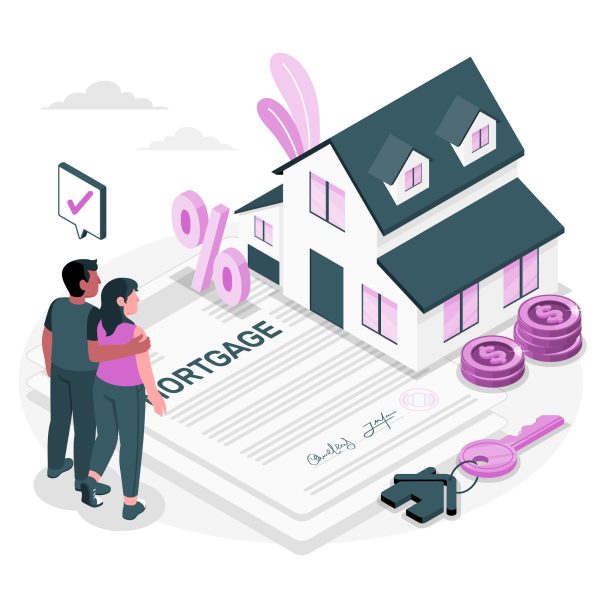
Whether you’re a first-time homebuyer or looking to refinance, understanding mortgage interest rates is crucial to making informed decisions about your home loan. This comprehensive guide will help you navigate the complex world of mortgage rates and empower you to secure the best possible terms for your home financing.
Understanding the Basics of Mortgage Rates
Mortgage interest rates represent the cost of borrowing money to purchase a home. This percentage determines how much you’ll pay in interest over the life of your loan, significantly impacting your monthly payments and the total cost of homeownership. These rates are influenced by various economic factors and can fluctuate daily, making it essential to understand what drives these changes.
Factors That Influence Mortgage RatesEconomic Indicators
The overall health of the economy plays a significant role in determining mortgage rates. Key factors include:
- Federal Reserve monetary policy
- Inflation rates
- GDP growth
- Employment statistics
- Housing market conditions
Personal Factors
Your individual circumstances also affect the interest rate you’ll be offered:
- Credit score
- Down payment amount
- Debt-to-income ratio
- Loan term
- Property type and location
Types of Mortgage RatesFixed-Rate Mortgages
Fixed-rate mortgages maintain the same interest rate throughout the entire loan term. This option provides predictable monthly payments and protection against future rate increases. Common terms include:
- 30-year fixed (most popular)
- 15-year fixed
- 20-year fixed
Adjustable-Rate Mortgages (ARMs)
ARMs start with a fixed rate for an initial period, then adjust periodically based on market conditions. These loans typically offer lower initial rates but carry the risk of future rate increases. Common ARM structures include:
- 5/1 ARM (fixed for 5 years, then adjusts annually)
- 7/1 ARM (fixed for 7 years, then adjusts annually)
- 10/1 ARM (fixed for 10 years, then adjusts annually)
How to Get the Best Mortgage RateImprove Your Credit Score
Your credit score significantly impacts the interest rate you’ll be offered. To improve your score:
- Pay bills on time
- Reduce credit card balances
- Avoid opening new credit accounts
- Review credit reports for errors
- Maintain a healthy credit utilization ratio
Save for a Larger Down Payment
A larger down payment often leads to better interest rates because it reduces the lender’s risk. Consider:
- Aiming for 20% or more to avoid private mortgage insurance (PMI)
- Exploring down payment assistance programs
- Setting up automatic savings contributions
Shop Around and Compare Offers
Don’t settle for the first rate you’re offered. Instead:
- Get quotes from multiple lenders
- Compare annual percentage rates (APR)
- Consider both traditional banks and online lenders
- Request quotes within a 14-day window to minimize credit score impact
Understanding Closing Costs and Fees
When evaluating mortgage offers, consider all associated costs:
- Origination fees
- Points (prepaid interest)
- Appraisal fees
- Title insurance
- Recording fees
- Property taxes and insurance
The Role of Mortgage Points
Mortgage points are fees paid directly to the lender in exchange for a reduced interest rate. Each point typically costs 1% of the loan amount and reduces the rate by 0.25%. Consider:
- How long you plan to stay in the home
- Break-even period for point purchases
- Available funds for closing costs
Timing Your Mortgage ApplicationMarket Conditions
While it’s impossible to perfectly time the market, you can:
- Monitor general rate trends
- Stay informed about economic indicators
- Work with a mortgage professional to understand market dynamics
- Set up rate alerts with various lenders
Personal Readiness
Focus on factors within your control:
- Stable employment history
- Strong credit profile
- Sufficient savings for down payment and closing costs
- Manageable debt levels
Refinancing Considerations
If you already have a mortgage, refinancing might help you secure a better rate. Consider refinancing when:
- Market rates are significantly lower than your current rate
- Your credit score has improved substantially
- You want to switch from an ARM to a fixed-rate mortgage
- You need to change your loan term
Frequently Asked Questions:
1. How much does a 1% difference in mortgage rate affect my payment?
On a $300,000 30-year fixed-rate mortgage, a 1% rate difference can change your monthly payment by approximately $150-200. Over the life of the loan, this 1% difference could result in paying (or saving) tens of thousands of dollars in interest.
2. Should I choose a fixed-rate or adjustable-rate mortgage?
The choice depends on your circumstances. A fixed-rate mortgage might be better if you:
- Plan to stay in the home long-term
- Prefer predictable payments
- Think rates will rise in the future
An ARM might be more suitable if you:
- Plan to move or refinance before the rate adjusts
- Can afford higher payments if rates increase
- Think rates will decrease in the future
Conclusion
Understanding mortgage interest rates is essential for making informed decisions about your home financing. By focusing on factors within your control, such as your credit score and down payment, while staying informed about market conditions, you can position yourself to secure the best possible rate for your situation. Remember that a seemingly small difference in interest rate can have a significant impact on your financial future, making it worth the effort to thoroughly research and compare your options.
Contact Shane Mathew
Disclaimer: This press release may contain forward-looking statements. Forward-looking statements describe future expectations, plans, results, or strategies (including product offerings, regulatory plans and business plans) and may change without notice. You are cautioned that such statements are subject to a multitude of risks and uncertainties that could cause future circumstances, events, or results to differ materially from those projected in the forward-looking statements, including the risks that actual results may differ materially from those projected in the forward-looking statements.
Media Contact
Company Name: Shane Mathew
Contact Person: Financial Advisor
Email: Send Email
Phone: 512-240-4212
Address:1201 Lavaca Street #830
City: Austin
State: Texas
Country: United States
Website: https://zesfinance.com/

